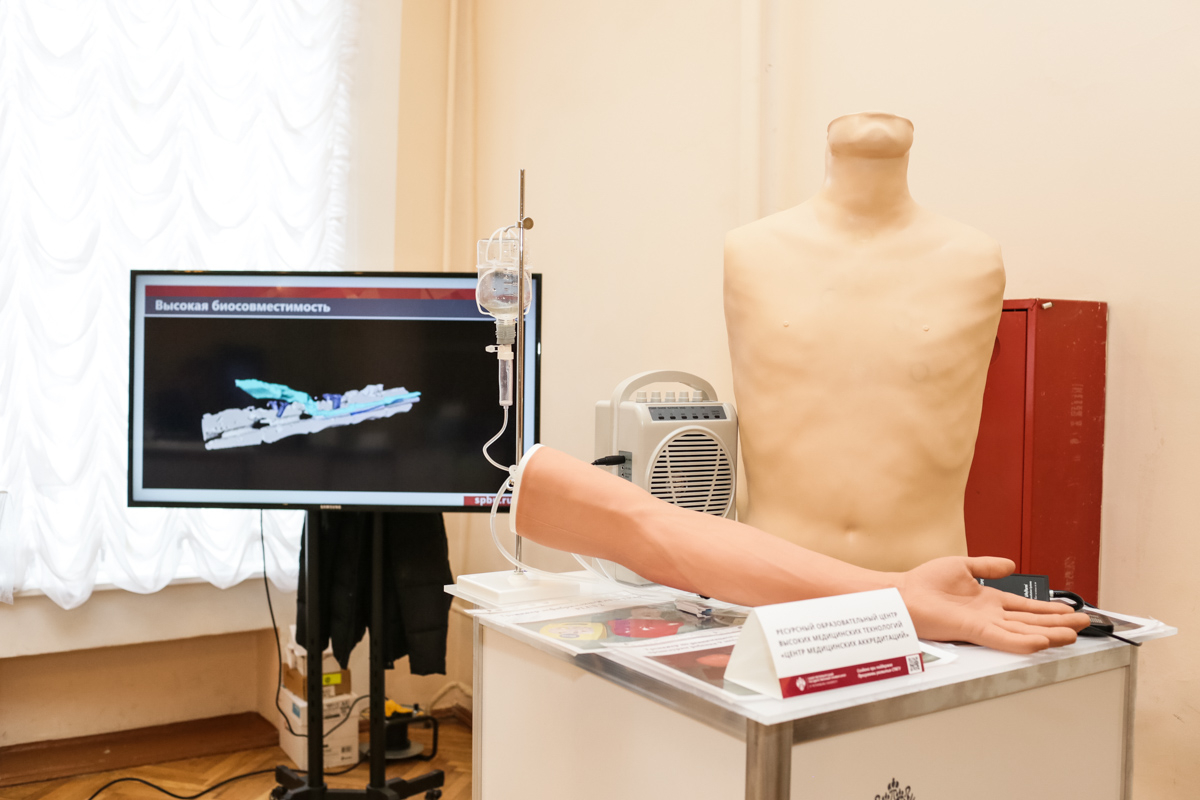Major Scientific Breakthrough on all Possible Fronts

St Petersburg University marked its 294th birthday with a large-scale research conference – Territory of Breakthrough. It attracted world-class scientists conducting cutting-edge research at SPbU.
Prof. Nikolay Kropachev, SPbU Rector, addressed the celebratory conference, highlighting that a few years ago it was hardly conceivable that so many outstanding scholars would gather at one venue. “Today, in this centre of scientific and spiritual life, we will hear messages about recent advancements in science delivered by leading scholars of St Petersburg University. Some of them have come from abroad – the University has recently welcomed about 400 scientists from different countries across the world,” said Rector in his address. Prof. Kropachev highlighted that the development of research is the University’s top priority. Currently, SPbU has 22 mega laboratories in different fields of knowledge, with thirteen of them established with grants won from the RF Government.
The Territory of Breakthroughс conference gathered major scholars who lead SPbU laboratories and research projects. They spoke about research tasks facing their teams and recent advancement in their fields of knowledge: mathematics and medicine, physics and biology.
Prof. Yehuda Shoenfeld, head of the Laboratory of the Mosaic of Autoimmunity, President of the international Autoimmunity Congress, told the students about the nature of diseases caused by the immune system, factors affecting the development of such medical conditions, and emerging technologies to fight autoimmune diseases. According to Prof. Shoenfeld, there are 80 autoimmune diseases affecting 5-20% of the global population. They are rooted in a range of external and internal causes including environmental and genetic factors. He explained that many diseases are caused by the changes in a person’s microbiome. This means that a specially designed diet may help people conquer an autoimmune disease.
Another paper was presented by Alexey Kavokin, head of the SPbU Spin Optics Laboratory named after Igor Uraltsev. He gave an insight into the history of the physics of light, talked about liquid light and simulators that can outperform supercomputers. “The physics of liquid light is interesting in terms of the fundamental phenomena. We can witness the fascinating phenomena of the quantum world at room temperatures – something that was only possible to see in special labs at super-low temperatures,” explained Prof. Kavokin, “besides, this branch of physics has a wide potential for application from quantum computers to superconductivity. It is important that the University supports research in this field.”
One after another, the world-renowned scientists ascended the stage. Prof. Stanislav Smirnov, head of the interdisciplinary Chebyshev Laboratory, presented a paper on how mathematical tasks are solved in different sciences. Prof. Pavel Musienko, head of the Laboratory of Neuroprosthetics at the Institute of Translational Biomedicine, reported on the results his laboratory has achieved in the regeneration of the spinal cord. Alexander Krylatov, head of the SPbU Council of Young Scientists, focused on digitalisation in theory and application. At the end of the conference the floor was given to Yury Shtyrov, head of the SPbU Laboratory of Behavioral Neurodynamics. He spoke about the relationship between speech functions and the retention of both native and foreign language vocabulary in people of different age.
Students and SPbU teaching staff could see the recent developments of SPbU scientists at the exhibition of advancements in science, technology, culture and art hosted by the University. It showcased soft neural implants for motor recovery in human patients, samples of materials with unique properties (nano-titanium, cermet, and aluminium oxide film grown by atomic layer deposition), as well as a model of oil extraction, developed by the University’s mathematicians to improve the existing practice.
The presentation of Famous People in Art at St Petersburg University, a memorial edition, was timed to coincide with the University’s birthday. It is the first in the series of books Alma Mater of Outstanding Alumni. As the authors intended, the book is more than a collection of 270 biographies of famous SPbU students, academics, and alumni. It accounts for the mark their alma mater left on their lives. Many documents published in the edition saw the light of day for the first time: SPbU historians had made a special effort to retrieve them from museums and archives all across Russia.
The presentation of the memorial edition was attended by one of its ‘personages’ – Ivan Krasko, a theatre and cinema actor, and a graduate of the Faculty of Philology, Leningrad State University (former SPbU). “The University has given me a lot. I was sure that if I couldn’t make it as an actor, I would land a job as a teacher of Russian language and literature,” says Ivan Krasko, “the university education is a solid academic foundation. If you don’t have it, you can’t consider yourself an educated person. The academic environment shapes morality. Pride, joy and light – these are the things which have stayed with me from my university years.”

